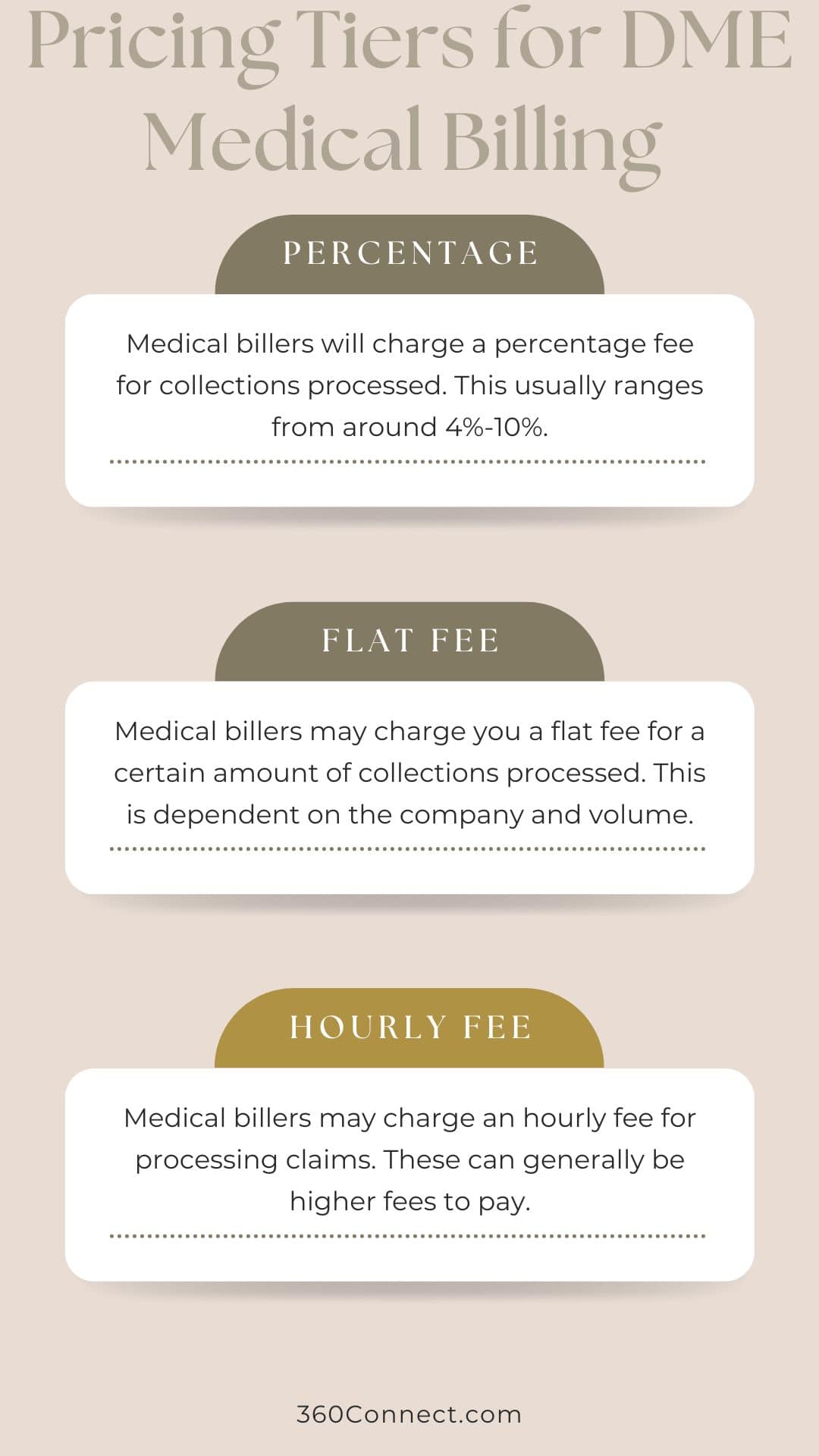DME Medical Billing

DME (durable medical equipment) medical billing is a complex subset of the medical billing industry. From navigating the justification of DME to insurance providers to tracking claims, DME medical billing provides plenty of opportunities for denials and incomplete claims. Fortunately, there is a solution that many practices turn to for better management of their billing: outsourced DME medical billing.
Can outsourced DME medical billing be the right choice for your practice?
We believe so.
What is DME Medical Billing
DME medical billing refers to the processes of billing for medical equipment by healthcare facilities. This type of medical billing is unique as it requires special coding such as HCPCS (Healthcare Common Procedure Coding System) and includes special billing for rentals. DME medical billing requires in-depth knowledge of the billing industry and ongoing local, state, and federal changes when it comes to coding. DME medical billing could include but is not limited to:
- Oxygen equipment
- Wheelchairs
- Crutches
- Blood sugar meters
- Canes
- Hospital beds
- Nebulizers
- Patient lifts
- Walkers
- Suction pumps
- Traction equipment
- And many more items!
DME medical billers have to stay up to date not only with new regulations but new equipment that is entering the market. Oftentimes, payer medical policies can change across different product lines, which can have a real impact on claim acceptance. DME medical billing presents some unique challenges for practices.
Common Problems with In-house DME Medical Billing
Because of the unique challenges of DME medical billing, there are some consistent themes that many medical practices run. While this list may not apply to everyone, a majority of these problems can be found in the industry.
Coding Errors
Because of the unique nature of DME medical coding, there are often errors and incorrect coding modifiers. This not only includes problems with coding for rentals, but misidentification, not including all of the equipment necessary in the claim, and the lack of understanding of HCPCS coding. this creates multiple opportunities for failure when it comes to approval.
Document Management
Many patients would probably be troubled if they looked in the back office of many a medical practice. One of the many common problems is medical practices are relying on legacy systems and generally have an unkept document management system. Not only does this go for physical papers, but electronically stored ones as well. Because of the high turnover rate for medical billing, many practices don’t have the time to establish a proper filing system. Not only does this lead to missing documents, but it can also lead to lost revenue. In worst-case scenarios, you can’t find patient documentation when you need it.
Payer Guidelines
The simple answer is that payer guidelines change often, and equipment may not be covered or “justified” due to these guidelines. Governmental or private insurance plans may not cover certain items, but the problem here is that these rules can change rapidly. This also doesn’t account for the different types of therapies and treatments associated with DME.
Staffing Issues
For many medical practices, it is hard to retain staff and find staff that specializes in DME medical billing. Not having the right staff, can equal lost revenue and dysfunction in your administrative services. This also has the added effect of providing poor customer service. Not only is it hard to find staffing, but it’s also hard to keep highly qualified staff as market rates for billing employees are continually going up. This is an industry-wide problem, but it especially affects the DME medical billing sector.
Many clinics waste time trying to hire and train staff only for employees to leave in a couple of years. This makes it hard to retain staff that has intimate knowledge about DME billing and results in wasted time where resources could be used elsewhere.
Liability
Whenever you handle your medical billing in-house, you assume all liability. With changing payer regulations and new technology every day, it can put incredible pressure on a medical facility and its billing department. The wrong decision could lead you to costly fines or lawsuits. If you’d like to have a dedicated partner that knows the industry in-depth, there is a solution!
What is Outsourcing Your DME Medical Billing?
Outsourcing your DME Medical billing is allowing a 3rd party organization to handle the billing administrative process for you. They work in tandem with your office staff to process claims faster and more accurately. Some of the common tasks performed by third-party billing companies are:
- Coding
- Processing claims
- Tracking claims
- Filing and storing patient paperwork
- 24/7 support denials
- Help optimize administrative tasks to ensure claim acceptance
- Resolve claim denials
- Provide financial reporting
- And more!
Outsourcing your DME medical billing can be great to improve your practice no matter how big or how small. Not only can it help increase your revenue, but the service can help pair with experienced medical billers in your field.

Why Outsource DME Medical Billing?
Stay Regulation Complaint
As we’ve talked about before, staying knowledgeable and compliant with local, state, or federal laws can be quite difficult because of the ever-changing nature of DME medical billing. However, most third-party medical billing companies hire experienced professionals and pay them top dollar to specialize in a certain field. This staff is knowledgeable and interacts with insurance and local agencies often.
Most of the time, they are the first to know of changes to pay our regulations or about how to process claims about specific pieces of equipment. Because these builders are working hand in hand with multiple insurance providers, they know exactly what to look for so claims can be accepted. You’ll improve both your success rate for claims and your ability to be compliant with the law.
Free Up Resources
Would you like to free up staff to tackle other administrative duties? Would you like to stop paying employees that are only going to leave in a year? Outsourcing your medical billing allows you to put your time and money into other sectors of your practice. You can invest in education about helping patients better or invest in technology that will better serve your patients. Essentially, you’re optimizing one of the hardest parts about running a practice and putting your efforts into things that matter more such as patient care.
Provide a Better Customer Experience
One of the most underrated forms of marketing is actually your billing capabilities. Having better billing capabilities can help you better inform patients about payments and how much services and items will cost. Once you start outsourcing your medical billing, you can invest in better customer service options and personnel.
Upgrade Your Technology
Medical billing suppliers will often help you find the best software or recommend the best technology to improve your administrative processes. They can help you choose what software is going to make your administrative tasks easier and produce better results.
Eliminate Errors
if you would like to cut down on errors and your billing process, then you need to partner with a third-party medical billing company. Not only will they keep you informed of best practices, update your technology needs, and handle most of your claims process, but they can help streamline your entire claims processing.
